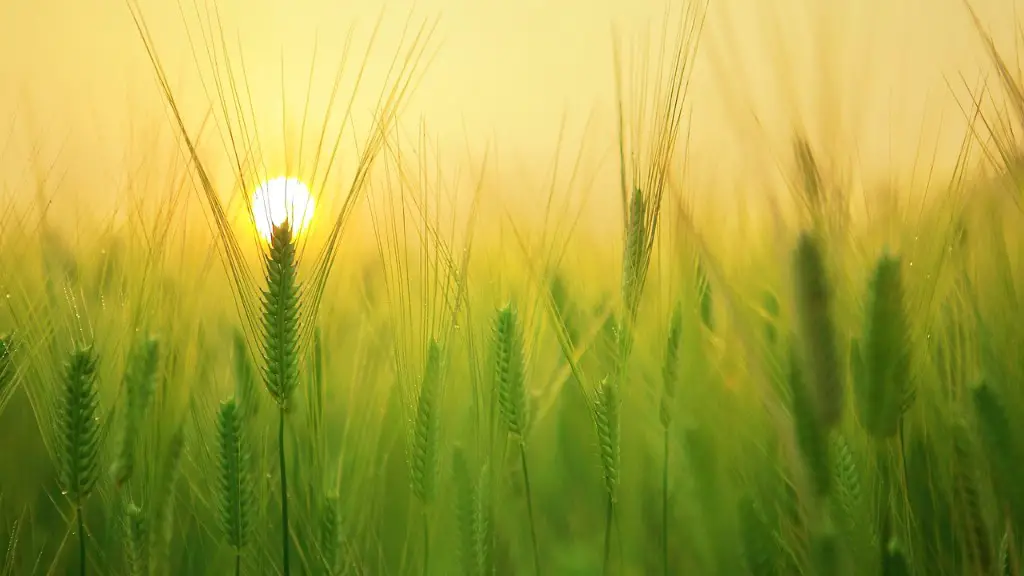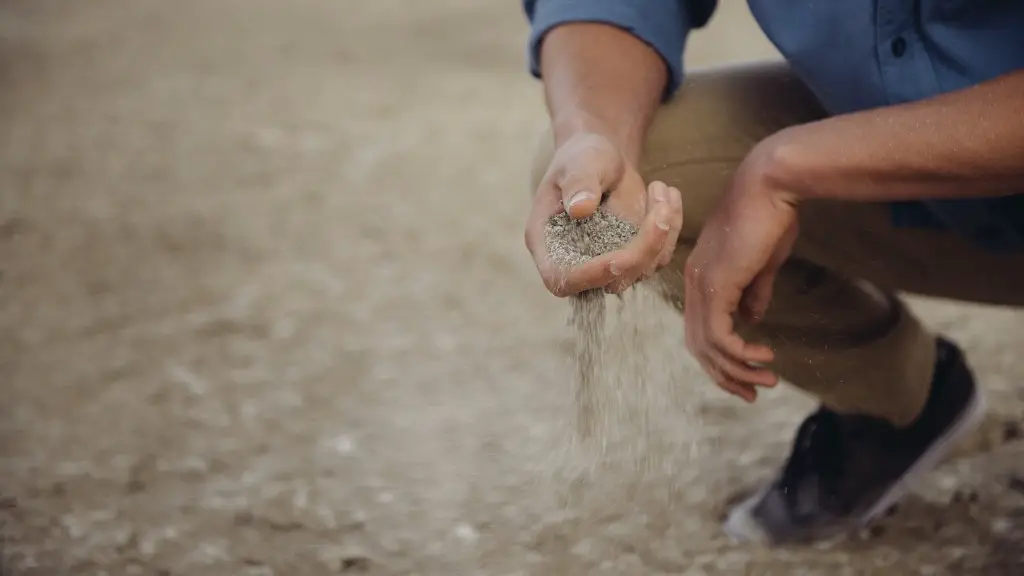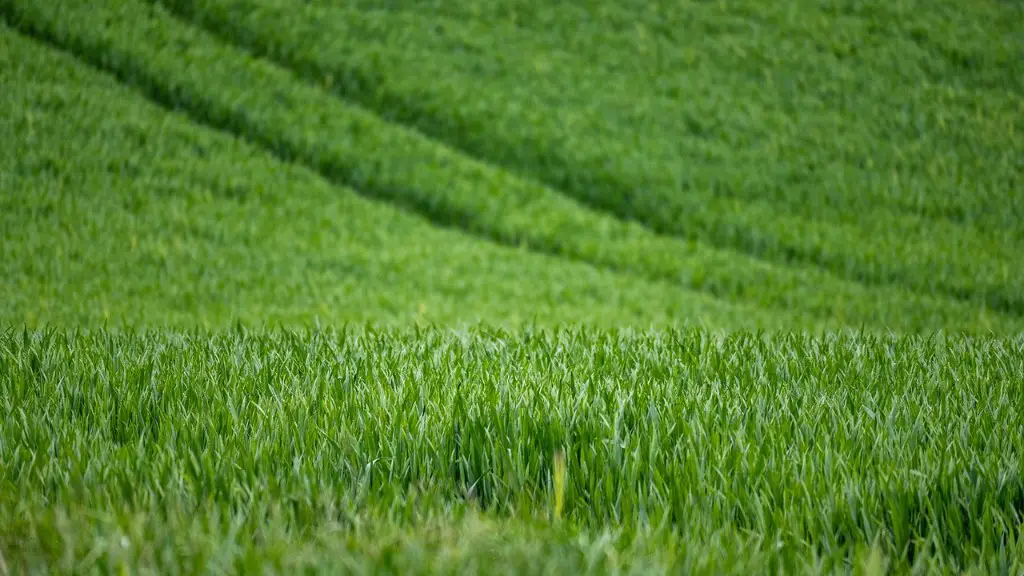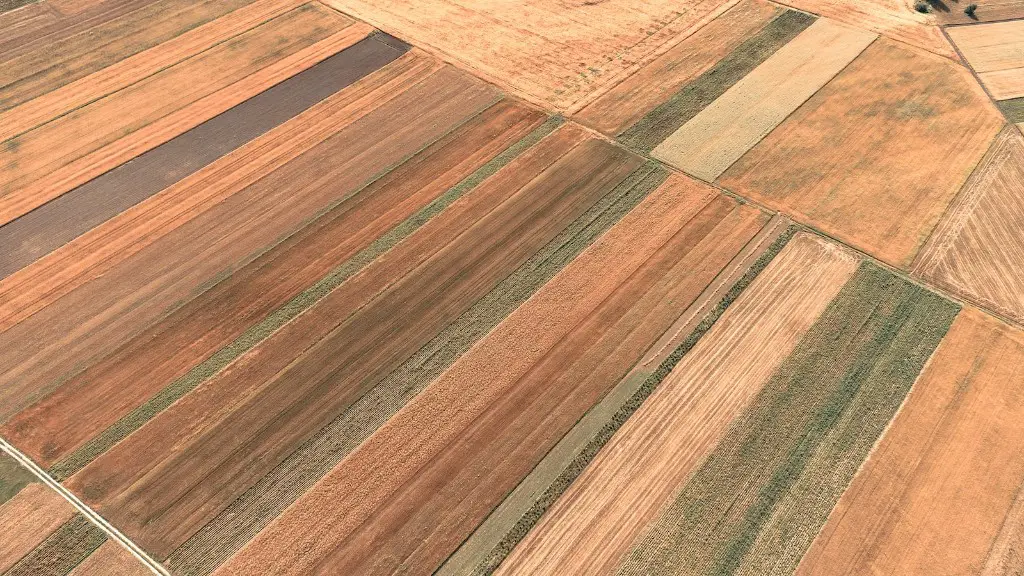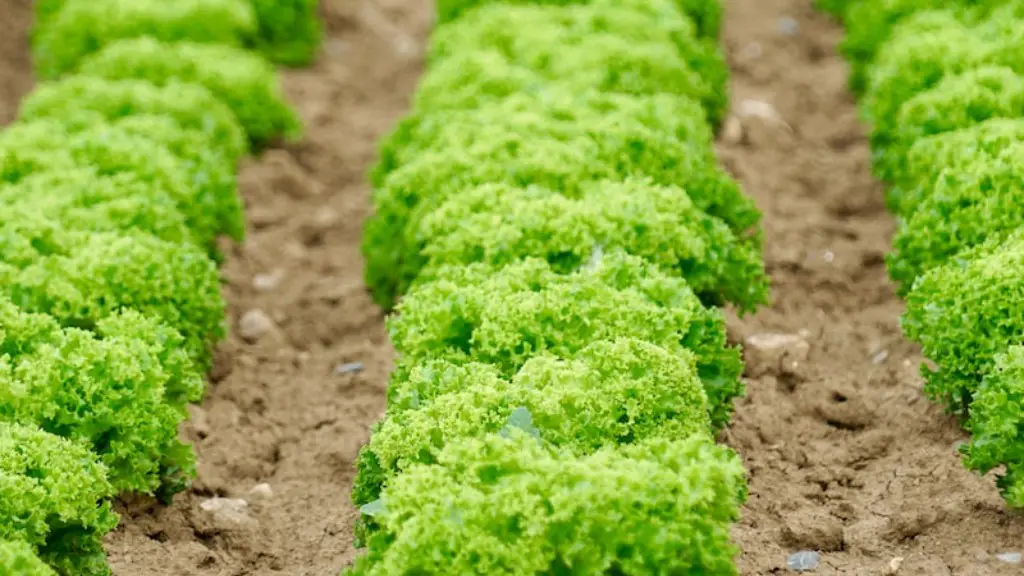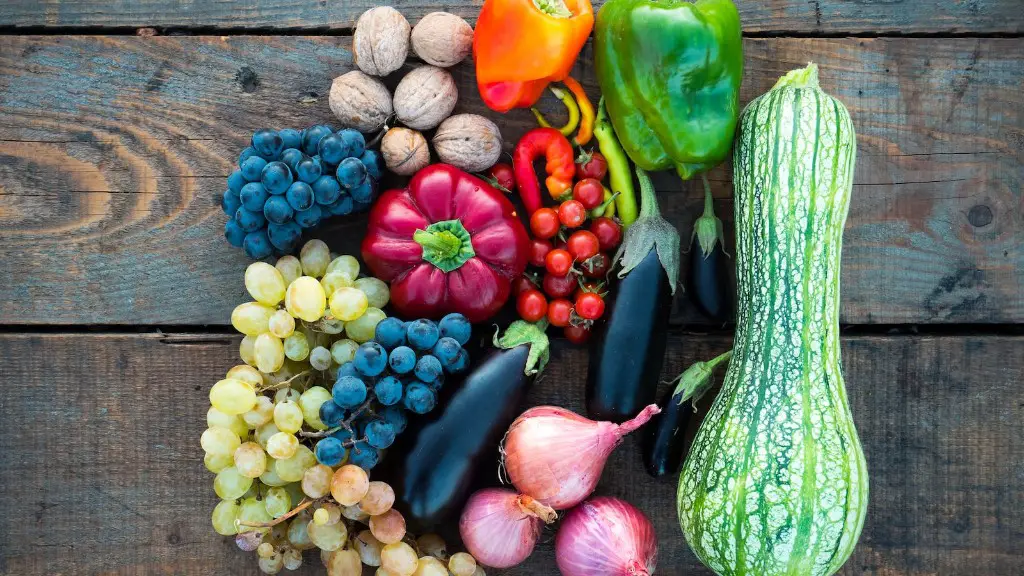Water is one of the most important resources in agriculture. It is essential for plant growth, crop production, and livestock health. There are many different ways to use water in agriculture, and the most effective method depends on the specific needs of the farm. in this guide, we will discuss some of the most common ways to use water in agriculture, including irrigation, drainage, and water storage.
There are a few ways water can be used in agriculture:
-water can be used to irrigate crops
-it can be used in ponds or lakes to create a habitat for animals
-it can be used to control erosion
-it can be used in climate-controlled greenhouses
What agriculture uses the most water?
Water-intensive crops are those crops that require a large amount of water to grow. Some examples of water-intensive crops include rice, soybeans, wheat, sugarcane, and cotton. These crops are typically grown in areas with high rainfall, or where irrigation is available. Alfalfa and pasture are also water-intensive crops.
Water is one of the most important natural resources, and it has a variety of uses. The most common water uses include: drinking and household needs, recreation, industry and commerce, agriculture, and thermoelectricity/energy. Each of these uses requires a different type of water, and each has a different impact on the environment.
What is efficient use of water in agriculture
Water use efficiency is the ratio of the water used effectively to irrigate the crops (water used by the crops) and the water entering the irrigation scheme. This term describes the effective water loss that occurs during the conveyance in the system, through the distribution canals, as well as in the farms.
Water is essential for the growth of crops. Without water, plants would not be able to photosynthesize and produce the food that we eat. In addition to supplying water for plants, water is also used to clean farm buildings and equipment, as well as to provide drinking water for livestock.
Water is also an important part of the agricultural process known as irrigation. Irrigation is the process of supplying water to crops through a system of pumps, pipes, and ditches. Without irrigation, many crops would not be able to grow in dry or arid climates.
Agricultural water use is a major user of water in many countries. In the United States, for example, agriculture accounts for approximately 80% of the nation’s water use. With such a large demand for water, it is important to use water efficiently and to conserve this valuable resource.
What are 10 ways to use water?
The Zakarians are known for their fabulous parties, and we’ve come up with 10 great ways to use this accessible, versatile ingredient at home to make your party just as great!
Boil Pasta in It: Nobody likes dry pasta right out of the box. Adding some Zakarian to your boiling water will add flavor and depth to your pasta dish.
Make Ice Water an Herb Garden: Put some Zakarian in a bottle of water and keep it in the fridge. As the water gets cold, the herbs will infuse the water with flavor.
Poach Eggs: Make hot tea and add some Zakarian to the water. The heat will help release the flavor of the herb and infuse the eggs with flavor.
Steam Things: Add some Zakarian to the water you use to steam vegetables or fish. The herb will add flavor and depth to your dish.
Water is one of the most important natural resources. We use water in our everyday life for many purposes. Some of these are for drinking, cooking, washing our dishes and clothes, feeding plants and for generating hydro-electricity.
Water is essential for our survival. We cannot live without it. It is also important for the healthy functioning of our bodies. That is why we need to be careful about the quality of water we drink.
We also need to be careful about how we use water. We should not waste it. We should use it wisely.
What are the 10 importance of water?
Water is essential for our bodies in many ways. It helps to replenish lost fluid from sweat, aids in digestion, and helps to filter out toxins through urination. Adequate water intake is important for overall health and well-being.
Water is a vital resource for our everyday lives. We use it for drinking, washing, cleaning, cooking, and growing food. Industry also uses water to generate electricity, manufacture products, and transport people and goods. With such high demand for water, it is important to conserve this precious resource.
What is the best way to use water
Here are some tips for conserving water:
– Never use your toilet as a waste basket
– Do not let the water run while shaving or brushing teeth
– Take short showers instead of tub baths
– If you must use a tub, close the drain before turning on the water and fill the tub only half full
Water is a precious resource and it’s important that we all do our bit to conserve it. Here are some useful and environmentally friendly tips for saving water:
– Take shorter showers. Showers generally last around 10 minutes, which uses as much as 200 litres of water. Reducing your shower time by even a minute or two can make a big difference.
– Thaw frozen food early. You can do it in the fridge or at room temperature, as long as you don’t run any water from the tap.
– Don’t let the tap run while you’re brushing your teeth. A running tap can waste as much as six litres of water per minute. Fill a glass of water and use that instead.
– When washing your hands, don’t let the water run the whole time. Wet your hands, turn off the tap, lather up, then turn the tap back on to rinse.
– Check for leaks. A leaking tap or pipe can waste a huge amount of water over time. Get any leaks fixed as soon as possible.
– Water your plants in the morning or evening. Evaporation is less during these cooler times of the day, so your plants will make better use of the water
What are 100 uses of water?
Water is one of the most important resources in our daily life. We use water for drinking, bathing, washing clothes, cleaning floors, flushing toilets, and cleaning fruits and vegetables. It is important to conserve water and use it wisely to ensure that we have enough for all of our needs.
Water is at the center of economic and social development; it is vital to maintain health, grow food, manage the environment, and create jobs. Despite water’s importance, globally, 2 billion people lack access to safely managed drinking water and 36 billion people lack access to safely managed sanitation. Water is a human right, and ensuring access to safe water and sanitation is essential to achieving many of the Sustainable Development Goals. With climate change and other challenges, the world’s water resources are increasingly under stress, and it is more important than ever to manage them sustainably.
Why water is the most important
Water is essential to the human body. It makes up approximately 60% of an adult’s body weight. Every system in the body depends on water. For example, water:
– Carries nutrients and oxygen to cells
– Flushes bacteria and toxins from the body
– Regulates body temperature
– Lubricates and cushions joints
– Protects organs and tissues
Water is essential to plant growth as it is a major component of photosynthesis. Plants use water to transport nutrients and minerals from the soil to their leaves and stems. Water also provides a permanent dwelling for many aquatic creatures, such as fish, amphibians, and insects. These creatures use water to lay their eggs, to hide from predators, and to find food.
How do plants use water?
Plants need water to survive, and they get this water through a process called osmosis. Osmosis is the movement of a liquid into a living thing, creating a balance of that liquid. For example, if a plant needs water, it will use osmosis to pull water through the roots until it has enough water to photosynthesize, or make food.
Water is one of the most important inputs for agriculture and proper management of water resources is essential for sustainable agriculture. Various water conservation strategies can help farmers to optimize water use and improve crop yield and productivity. Some of the important water conservation strategies for agriculture include irrigation management, use of water-efficient technologies, proper fertilizer and pesticide application, and crop cooling.
Final Words
Water is essential for all plant life and is a key resource in agriculture. Farmers and ranchers use water for irrigation, to raise livestock, and to grow crops.
Water plays a vital role in every aspect of agriculture. It is essential for plant growth, crop production, and raising livestock. Farmers and ranchers use water for irrigation, to water their crops and pastureland, and to provide drinking water for their animals.
While agriculture is a major user of water, it is not the only sector that consumes water. Water is also used in the manufacturing of products, for energy production, and in households and businesses. In addition, water is used for recreation and to maintain healthy ecosystems.
There are many ways to use water in agriculture. One way is to use it for irrigation. Another way is to use it for livestock.
